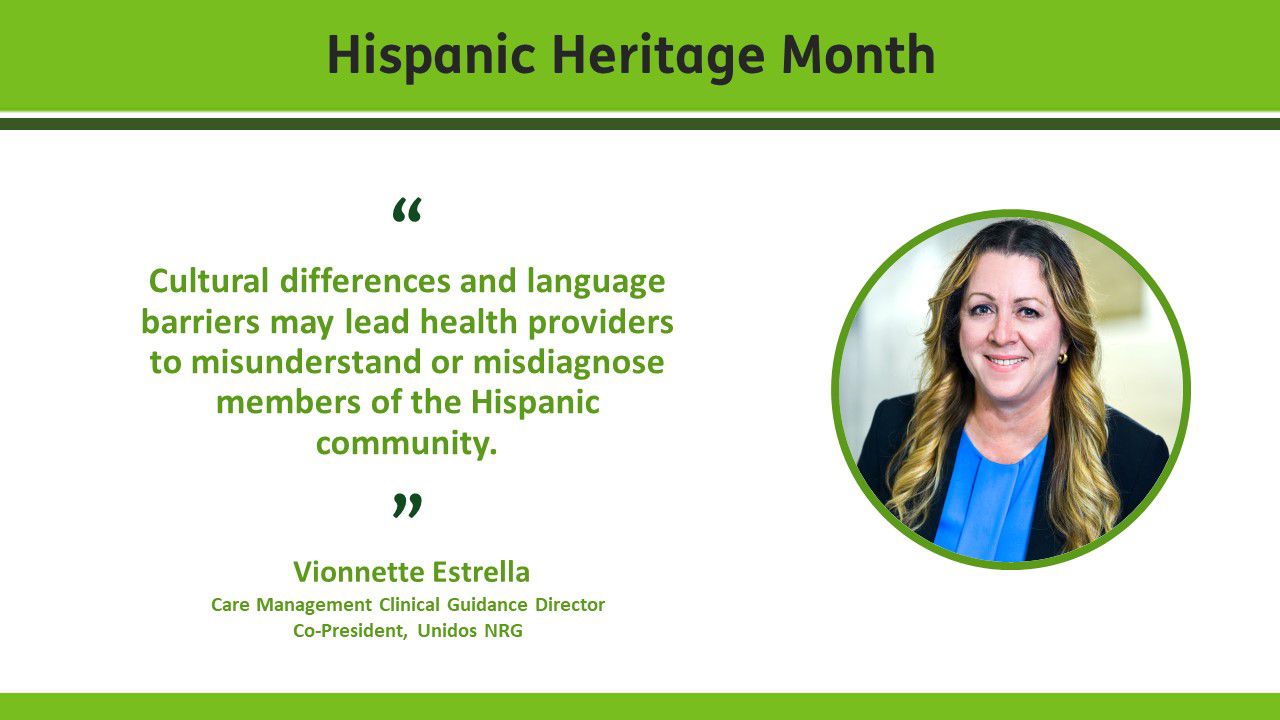Physical and mental health are important elements of whole person health. Equitable access to physical and mental health services is a necessary part of addressing health disparities in vulnerable populations. The stigma of mental health issues can keep people from seeking appropriate care, which is true for the Latino and Hispanic communities.
According to 2019 U.S. Census estimates, there are 60.5 million Hispanics living in the United States, representing 18.4 percent of the total population. In 2019 , 9.7 percent of Hispanic adults received mental health services when compared with 19.8 percent of non-Hispanic whites. Also, 7.3 percent of Hispanic adults received prescription medication for mental health services, compared with 16.6 percent of non-Hispanic white adults.
“For mental health issues, there is a stigma among the Hispanic and Latino community,” said Vionnette Estrella, Humana Care Management Director and Co-President of the Unidos NRG. “Many Hispanic and Latinos would prefer to ignore these conditions over talking about them openly and that reduces the probability of this community to seek appropriate care.”
“The most common mental health conditions for the Hispanic and Latino communities are generalized anxiety disorder, major depression, post-traumatic stress disorder and excessive use of alcohol and drugs,” said Vionnette.
“Cultural differences and language barriers may lead health providers to misunderstand or misdiagnose members of the Hispanic community,” said Vionnette. Increased access to healthcare providers with specialized knowledge and cultural sensitivity will help to ensure quality treatment in vulnerable populations and improve whole person health.


